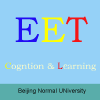-
Multiple intelligences, Part 1
普通类 -
- 支持
- 批判
- 提问
- 解释
- 补充
- 删除
-
-
Introduction
WE ARE ALL UNIQUE in the Intelligences we possess. This article introduces you to Four of the Eight Multiple Intelligence categories by (Gardner, 1983). The other four are in Multiple Intelligences, Part 2.
-
Traditional versus Multiple Intelligence
According to traditional theory, we are born with a certain amount of intelligence. Intelligence consists of ability in logic and language and is measured by short answer tests. One's intelligence level doesn't change.
By contrast, Gardner's theory defines eight types of intelligences that reflect different ways of interacting in our environment. We all have a combination of different intelligences, but each one of us is unique. Assessments of one's intelligence can enhance learning and problem-solving styles. One's intelligence level improves more easily in one intelligence area than in others.
"All brain-unimpaired people possess all the intelligences, which they blend in various ways in the course of creating something that is meaningful or performing a meaningful role or task" (Gardner, 1983)..gif)
-
Four Categories of Intelligences
A "Bodily-Kinesthetic" person likes to move around, touch and talk, and uses body language. This individual learns best by touching, moving, interacting with space and processing. One increases their knowledge through bodily sensations. This intelligence is developed from three to seventy years old.
Occupations who fit this area of intelligence are athletes, actors, and construction workers. Role-playing, rearranging the room, and using the body helps in learning and developing this intelligence.
Using hand movementsThe "Interpersonal" individual is able to persuade, listen, and communicate with others. This learner enhances his knowledge by sharing, comparing, relating, cooperating and interviewing. Compatible professions in this category are salespersons, social workers, and actresses.
This intelligence can be developed more by working in groups to problem-solve, giving and receiving feedback, and organizing events. There is no age limit in developing this intelligence (Jensen, 1998).
The "Musical" individual is sensitive to sounds. This person learns through rhythm, melody and music. The important stage for developing this intelligence is from age three to six.
Appreciate musicYou can develop this intelligence more by putting information to rhythms, making up sounds for the subject you are studying, and practicing humming patterns from memory. Occupations that fit in this category are musicians, music lovers, K-6 teachers, and composers.
The "Naturalist" can recognize and categorize plants, and animals in our environment. This individual learns best by studying in a natural environment, and by how things work. Farmers, gardeners, botanists, geologists, florists, and archaeologists possess this Naturalist trait (Gardner, 1996).
Categorize the plant kingdomCharles Darwin is a good example of a "Naturalist." He identified and classified insects, birds, fish and mammals, which lead to his theory of evolution. Another different example of a Naturalist is a person who can identify and describe the features of every make and model of a vehicle in their environment.
-
Conclusion
Provide individuals with learning activities and opportunities that cover all of the multiple intelligence categories to enable them to succeed, while some individuals may not succeed easily. The individual should be reached at deeper level to achieve this goal. A recommendation for trainers, managers, and educators is to plan classes or workshops that include three or four of the eight categories of intelligences (Jensen, 1998).
-
Relation
Luz Arreola, Graduate Student
San Diego State University -
-
- 标签:
- naturalist
- gardner
- individual
- person
- part
- learns
- multiple
- developing
- learning
- intelligences
- categories
- intelligence
-
加入的知识群:




学习元评论 (0条)
聪明如你,不妨在这 发表你的看法与心得 ~